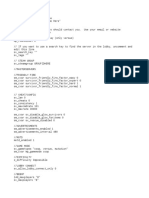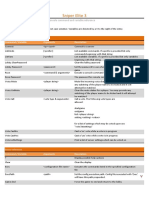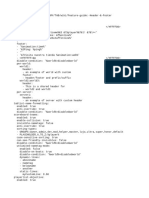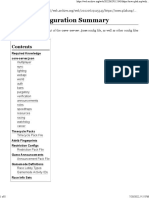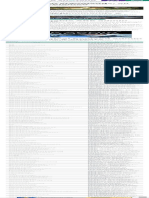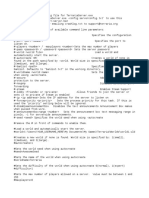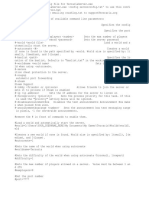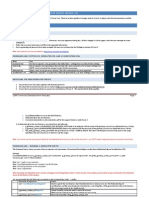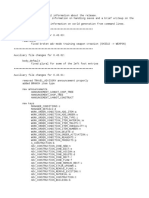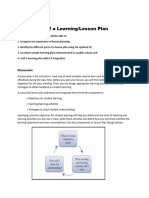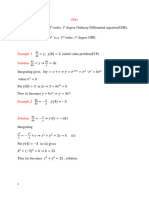0% found this document useful (0 votes)
50 views3 pagesDefault Servercmdline
The document provides instructions and examples for configuring command line parameters for a game server. It lists many optional parameters for configuring settings like the server port, maximum players, logging levels, and file paths. Parameters can customize the server MOTD, description, map rotation settings, permissions, and more. Comments explain the use and purpose of most parameters.
Uploaded by
Jacob LanesCopyright
© © All Rights Reserved
We take content rights seriously. If you suspect this is your content, claim it here.
Available Formats
Download as TXT, PDF, TXT or read online on Scribd
0% found this document useful (0 votes)
50 views3 pagesDefault Servercmdline
The document provides instructions and examples for configuring command line parameters for a game server. It lists many optional parameters for configuring settings like the server port, maximum players, logging levels, and file paths. Parameters can customize the server MOTD, description, map rotation settings, permissions, and more. Comments explain the use and purpose of most parameters.
Uploaded by
Jacob LanesCopyright
© © All Rights Reserved
We take content rights seriously. If you suspect this is your content, claim it here.
Available Formats
Download as TXT, PDF, TXT or read online on Scribd
/ 3

